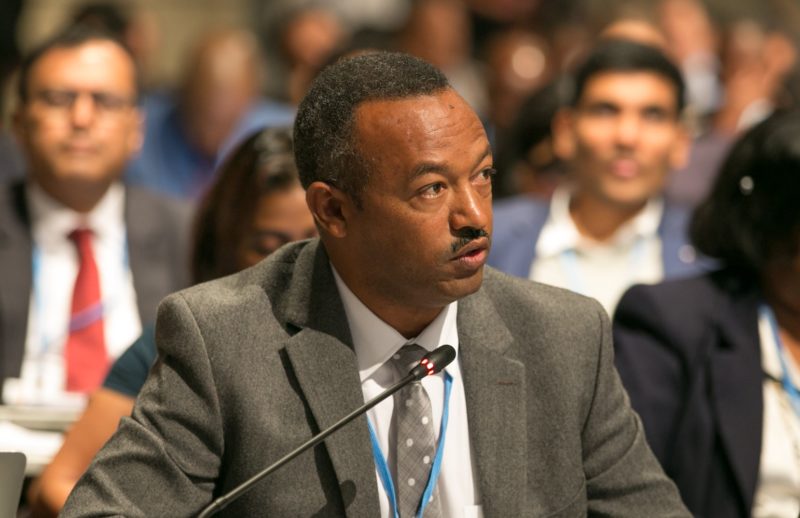The 23rd Session of the Conference of the Parties (COP23) to the United Nations Framework Convention on Climate Change (UNFCCC) that came to a close on Friday, November 17, 2017 will be remembered for highlighting climate change impacts on vulnerable nations.

Hosted by Fiji but held in Bonn, Germany, the first “island COP” was said to have shone a spotlight on the impacts of climate change on island states and particularly vulnerable countries.
Chair of the Least Developed Countries (LDC) group, Gebru Jember Endalew, said, “As an Ethiopian, I know intimately the pain caused by climate change. My country is in the grip of a severe drought that has put 13 million people in Ethiopia, Kenya and Somalia at risk of increased food insecurity. At the same time, our friends in South Asia have been drenched by extraordinary monsoon flooding, friends in the Caribbean have been battered by devastating hurricanes, and island states in the pacific are watching their homes disappear before their eyes beneath the water.
“As Prime Minister Frank Bainimarama of Fiji put it, we are all in the same canoe. The impacts may vary, but no country can escape the damage of climate change. This is why we came to COP23 with high expectations for a COP of action and support, with substantive outcomes to achieve the goals set by the international community in Paris.
“The LDCs welcome progress that has been made here at COP23, including the adoption of the Gender Action Plan and the Indigenous Peoples’ and Local Communities’ Platform. It is essential that we amplify marginalised voices and recognise the disproportionate impact of climate change on women and indigenous communities around the world. This is crucial for achieving global climate justice and for addressing the multi-faceted threat of climate change.
“Progress was also made on the design of the Talanoa Dialogue to be held in 2018. The Dialogue must lead to an increase in ambition by all countries to put us on track to limit the global temperature increase to 1.5 degrees Celsius.
“A key priority at COP23 was making significant progress on developing the ‘ruleset’ that will govern how countries implement their Paris Agreement commitments. While the LDC group welcomes the progress made, many areas of work are still lagging behind. This jeopardises our ability to complete the Paris ruleset by our agreed deadline at the end of 2018. We must urgently put pen to paper to properly finalise the ruleset in a thoughtful and considered manner, without a last-minute rush.
“We also need to rapidly translate work done in the negotiating rooms into tangible action on the ground. This calls for ambitious climate action by all countries through strengthening and implementing national contributions, managing the decline of fossil fuels, and promoting renewable energy. The LDCs are committed to leading on ambitious climate action in our countries – a key example is the LDC Renewable Energy and Energy Efficiency Initiative, an LDC-owned and driven initiative to bring universal access to clean energy in the world’s poorest countries.
“Tackling climate change also requires support for adaptation and loss and damage action in poor and particularly vulnerable countries. The LDC Group thanks Germany, Sweden and Belgium for the contributions to the Adaptation Fund and Least Developed Countries Fund. We hope to see other countries following suit and rapidly accelerating their finance pledges to meet the scale of support needed by developing countries to fill the ever-widening finance gap.
“In particular, the need to adapt to, and address the irreversible loss and damage arising from, climate change is a matter of urgency for LDCs. The scale of loss and damage that LDCs are experiencing is already beyond our capacity to respond and it will only get worse, with more lives lost, more destruction to infrastructure and a bigger impact on our economies. We will not be able to raise our people out of poverty if we do not effectively address loss and damage and for that we need support.
“The LDCs call for a global response to climate change that is fair and equitable, that advances the interests and aspirations of poor and vulnerable countries and peoples, and fulfils our Paris vision of limiting warming to below 1.5°C to ensure a safe and prosperous future for all.”
